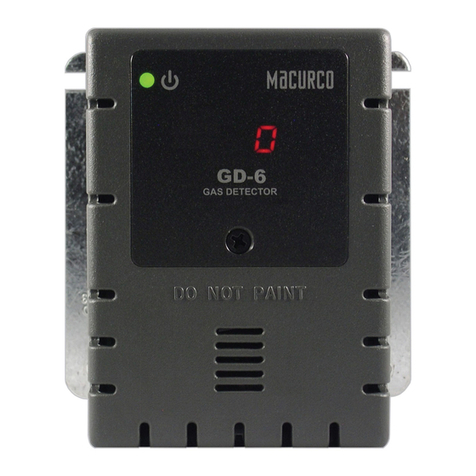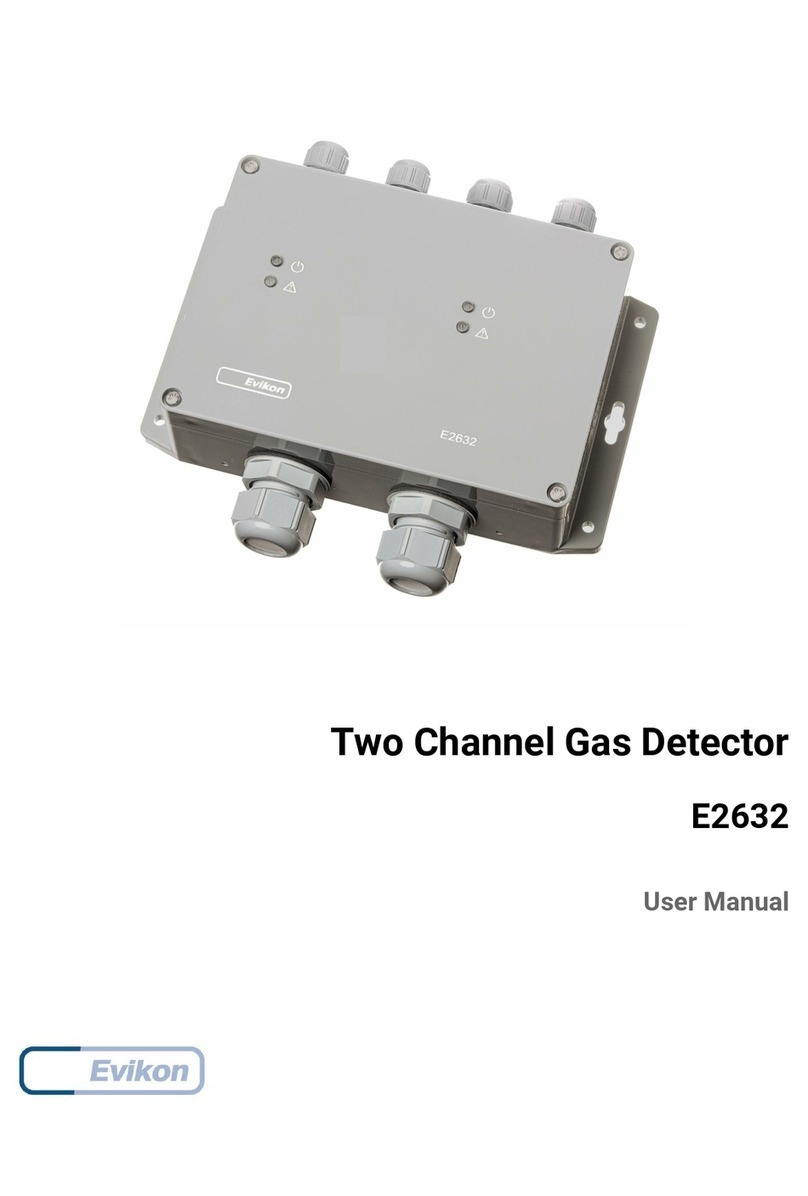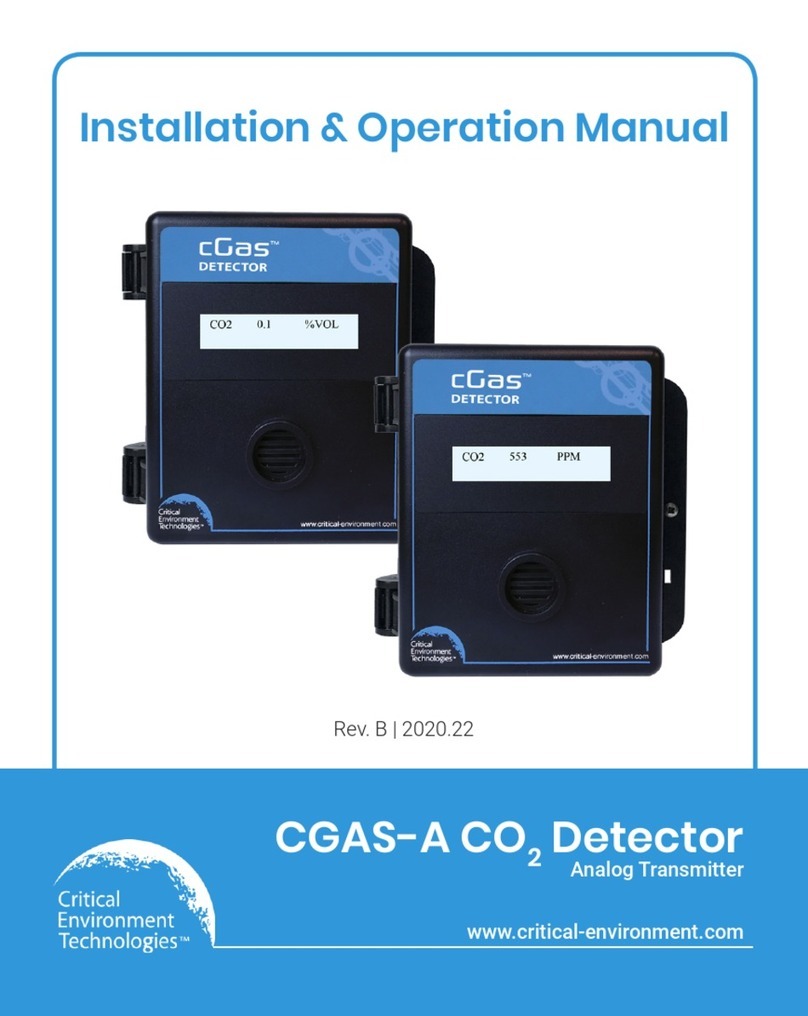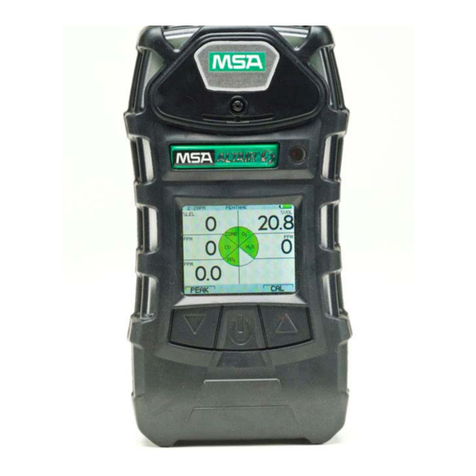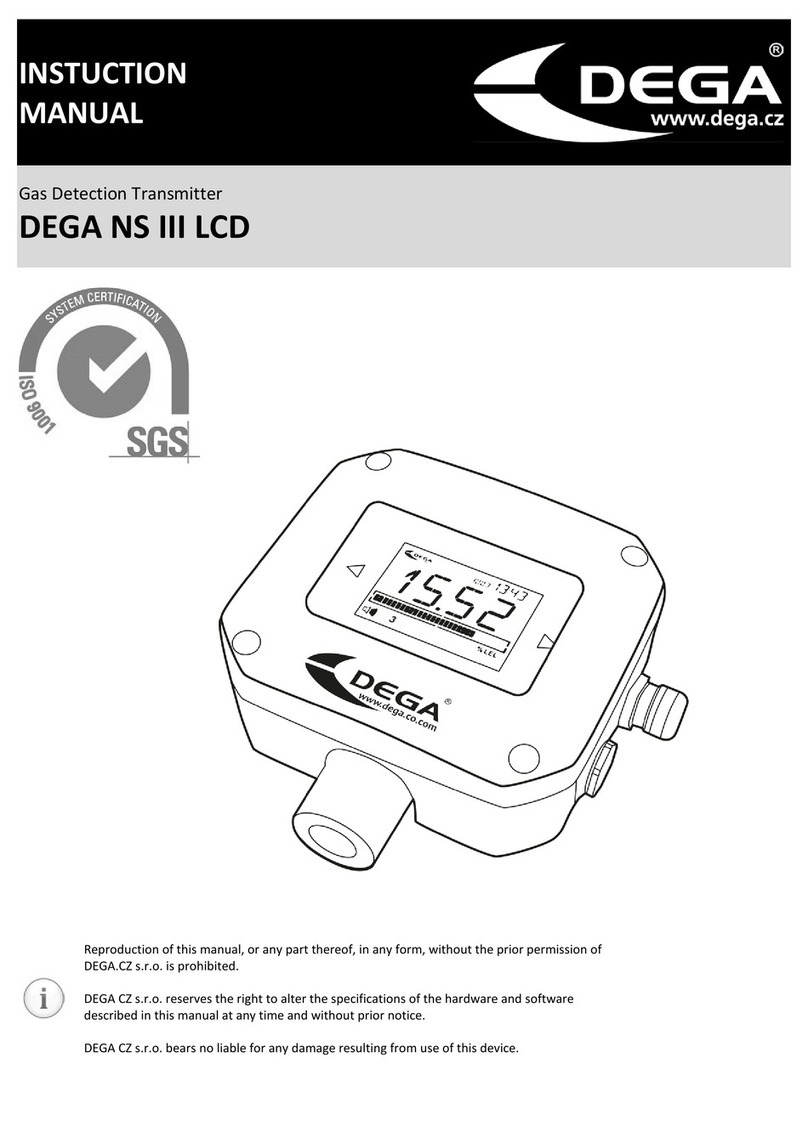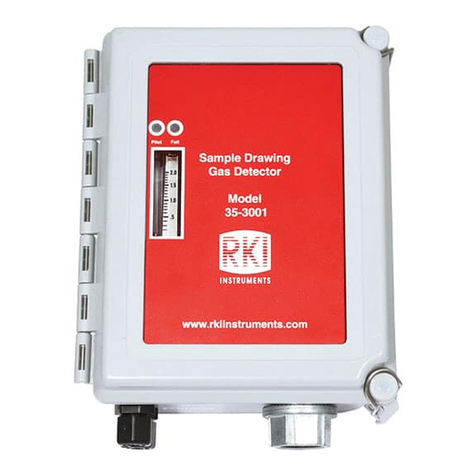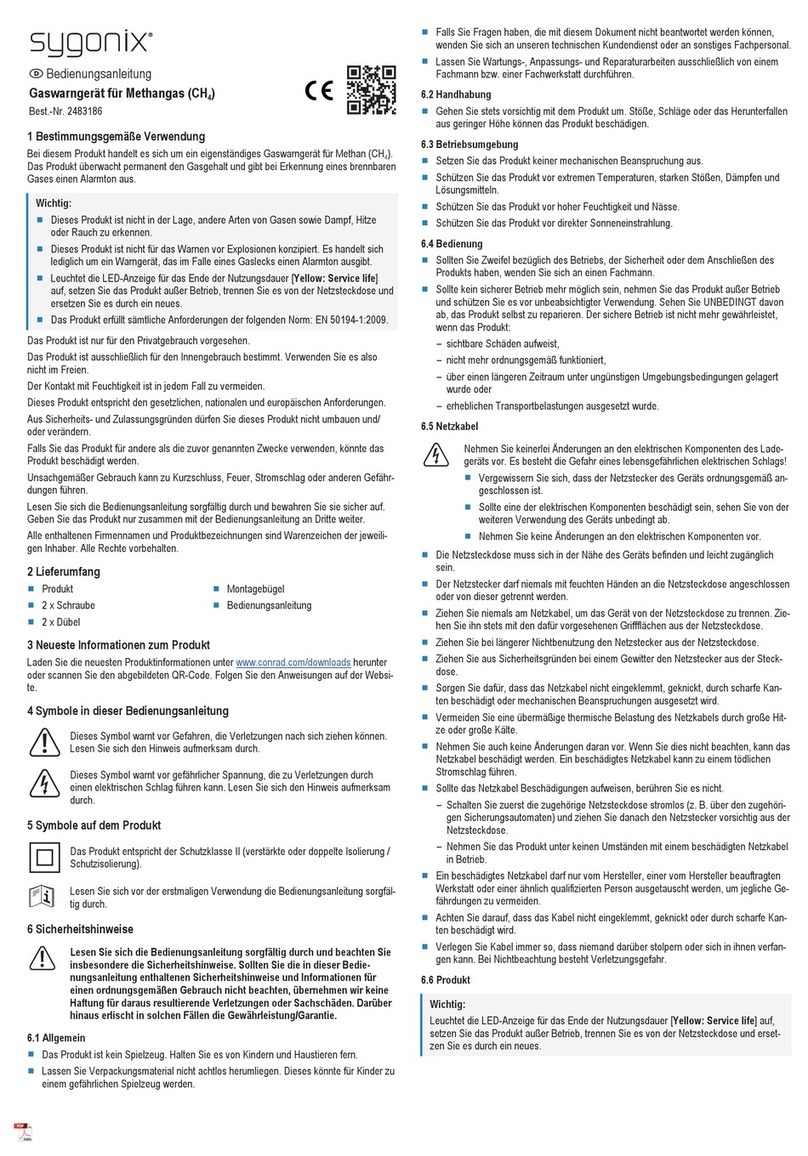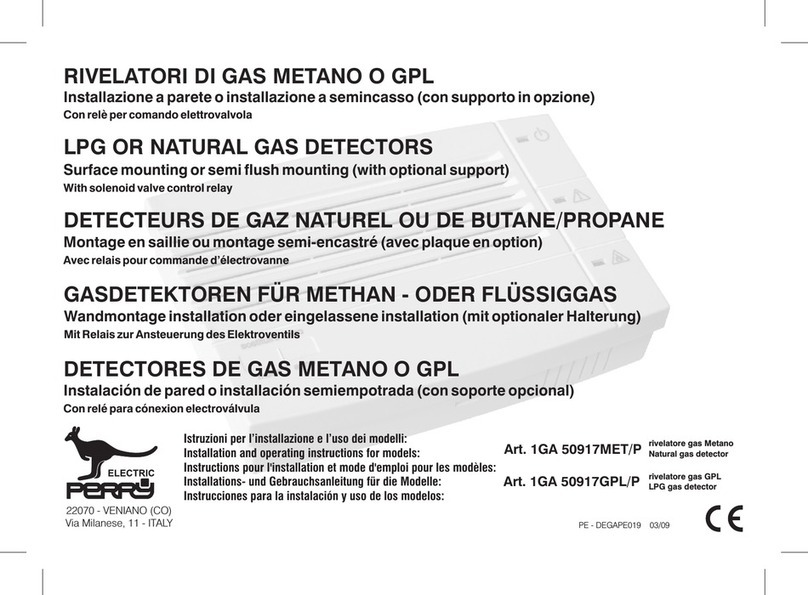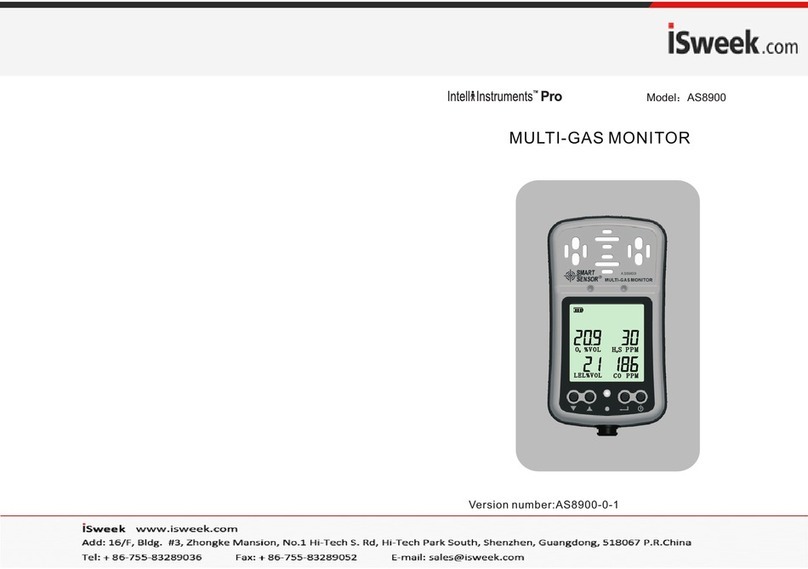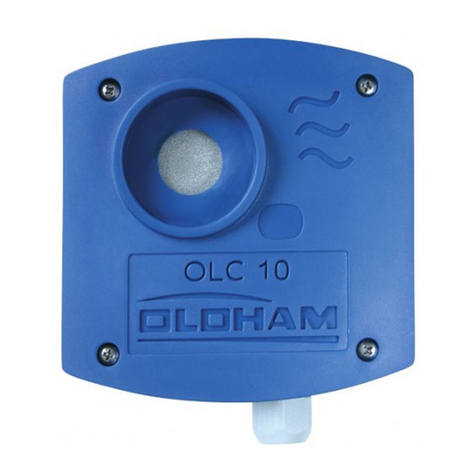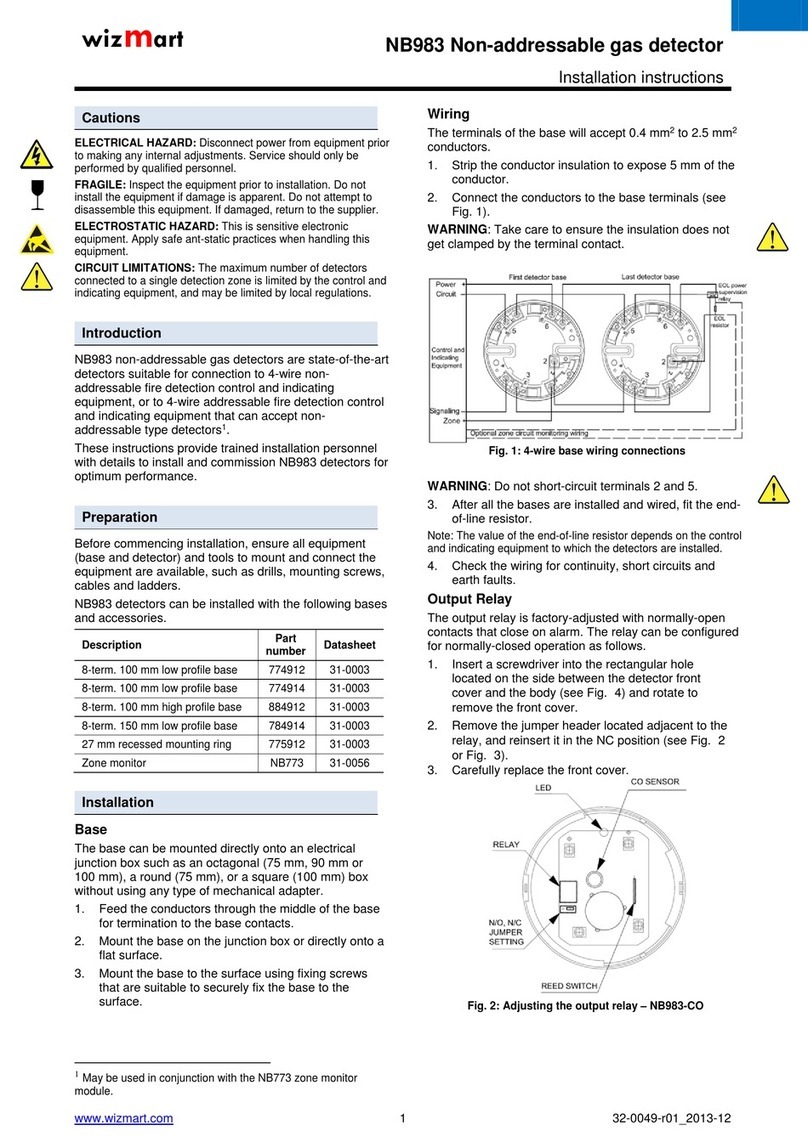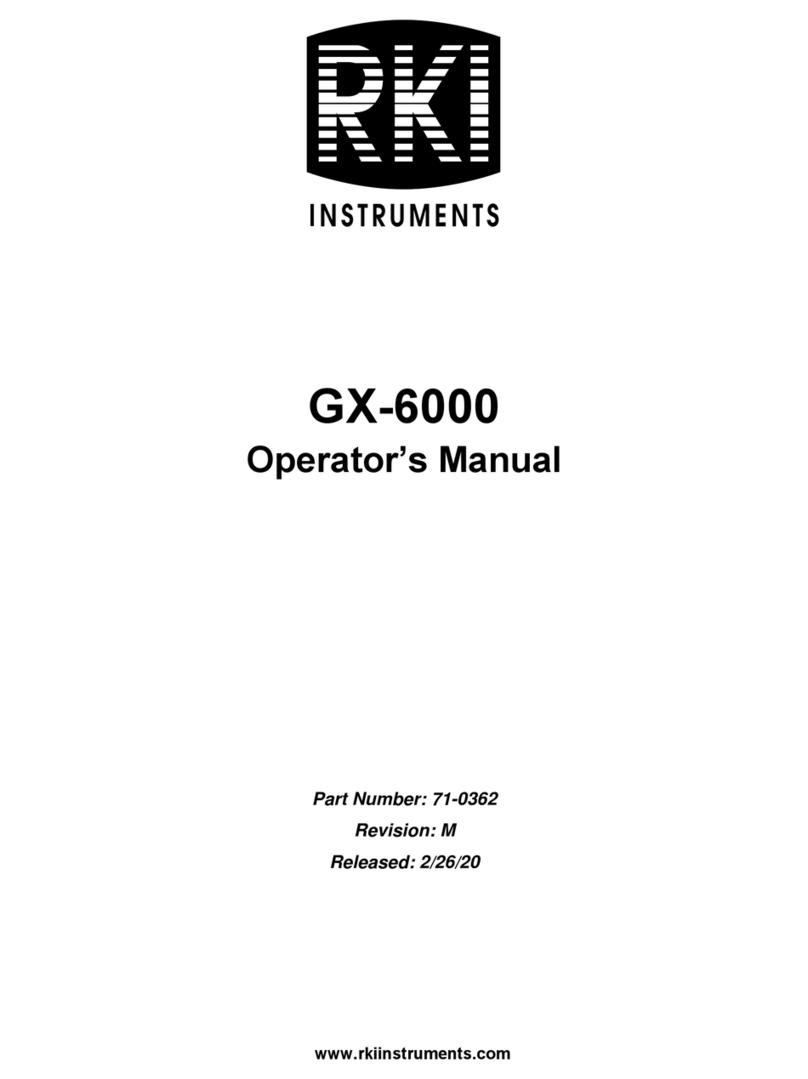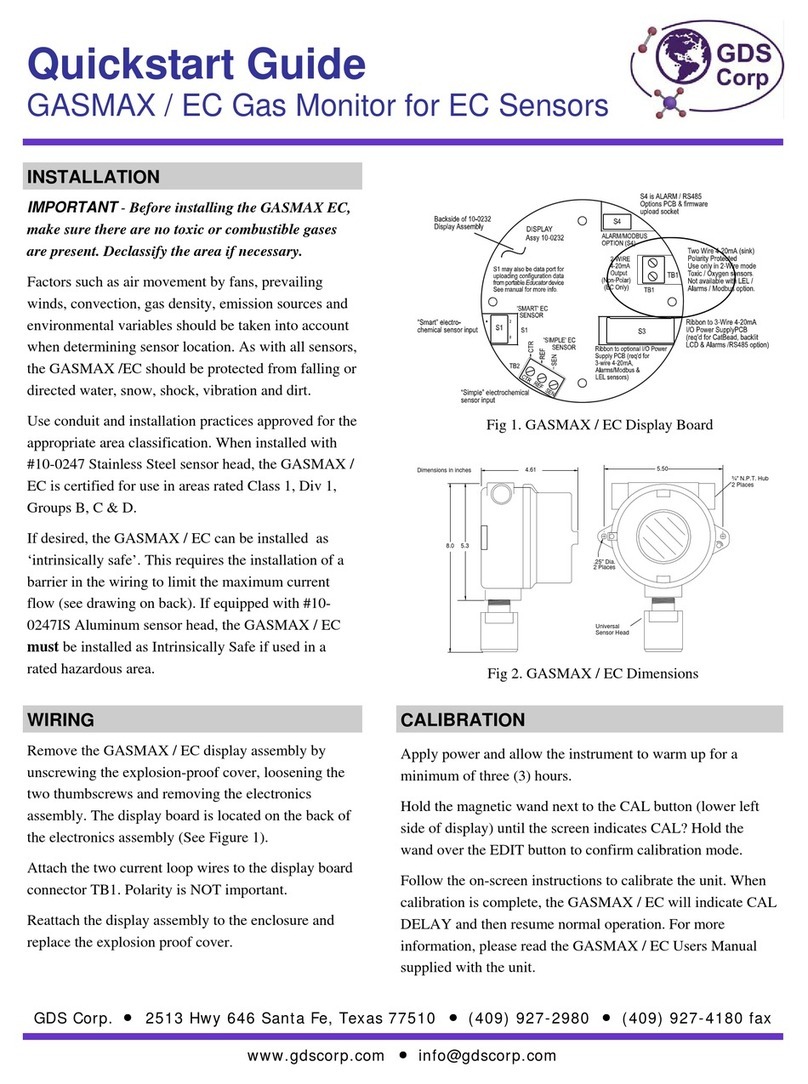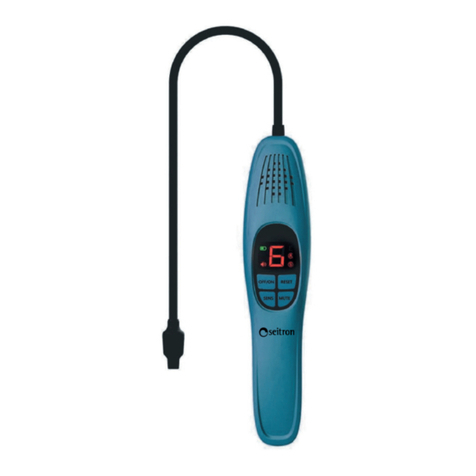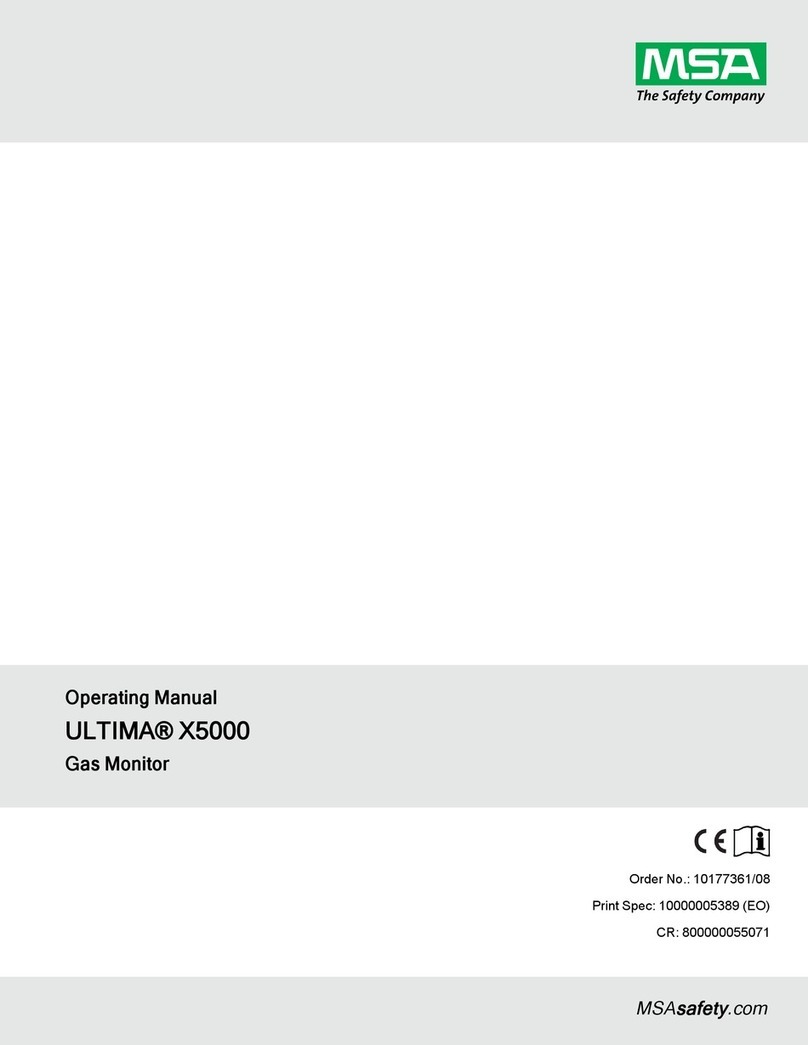
20 years of experience in developing radiation detection
technology for consumers and government agencies.
RADEX MR107 Quick Start
Thank You for purchasing the RADEX MR107 Radon
Gas Detector. This unit is designed to detect and mea-
sure the Equivalent Equilibrium Volume Activity (EEVA)
of the Rn-222 (radon) in the air, as well as volumetric
activity of its decay products commonly called “daugh-
ters of radon”.
RADEX MR107 can detect dynamic changes in gas con-
centration, sound an alarm when the gas levels are no
longer safe, transfer data onto a PC for analysis.
Features and capabilities:
• measuring the volume activity of radon in the air
(EEVA); relative humidity and air temperature
• adjustable audio alarm that reacts to excessive
EEVA levels of radon
• tracking of dynamic changes in radon EEVA, air
temperature and relative humidity.
• calculating minimal, median and maximum values
of radon EEVA. Air temperature and relative
humidity.
• storing gathered data in internal memory
• transferring stored data to PC.
• working with data via PC software
GETTING STARTED
This device does not require any special preparations
or a warmup and is ready as soon as is activated.
The device draws power from an internal battery or
from an external power source of 5V. To connect to an
outside power source use the micro-USB port located on
the back side of the device.
PLACING THE DEVICE
The proper placement of the radon gas detector
should be roughly at the same height as a person’s head
(breathing), ie – on the oor of a game room; on a table
at an oce; on a nightstand in a bedroom.
Radon detector uses highly delicate sensors, hence it
is strongly recommended to avoid exposing ventilation
holes on the device to direct sunlight, as well as keeping
the device away from sources or strong electromagnet-
ic radiation such as cell phones, computers, radios and
high-power electronic devices.
In the case of dangerously high radon levels it is neces-
sary to fully and properly ventilate the venue and prefera-
bly to locate the source of the gas leak and to remove it if
possible. Another option is to seal o the leak.
TURNING THE DEVICE ON AND OFF
To turn the device ON
1. Activate the device using the “Power” switch
located on the back side. The device will go into
Waiting mode.
2. Press on the front side.
3. The device will switch into Measuring mode.
Turning the device OFF.
1. Press and hold the button on the front side of
the device for 5 seconds. The device will switch
from Measuring mode to Waiting mode.
2. For extended storage or transporting please use
the “Power” switch on the back side.
OPERATING THE DEVICE
As the device is activated, the model name appears
on its screen and after 5 seconds the device is in Mea-
suring mode. At the same time there is a status bar and
information about the latest measurements.
To save battery power while operating unplugged, the
device will turn o the screen after some time. Mean-
while the measuring continues which is indicated by the
blinking “work in progress” light.
To turn on the screen press the on the front panel of
the device. If the device is plugged in the screen remains
always on.
IMPORTANT: To achieve the highest possible
accuracy we strongly recommend to measure
continuously for no less than 72 hours.
screen
On / O / Switch information
on the screen
Work in
Progress
light
USB port to link to a PC or to charge the battery
Power OFF
switch
Front
Back
